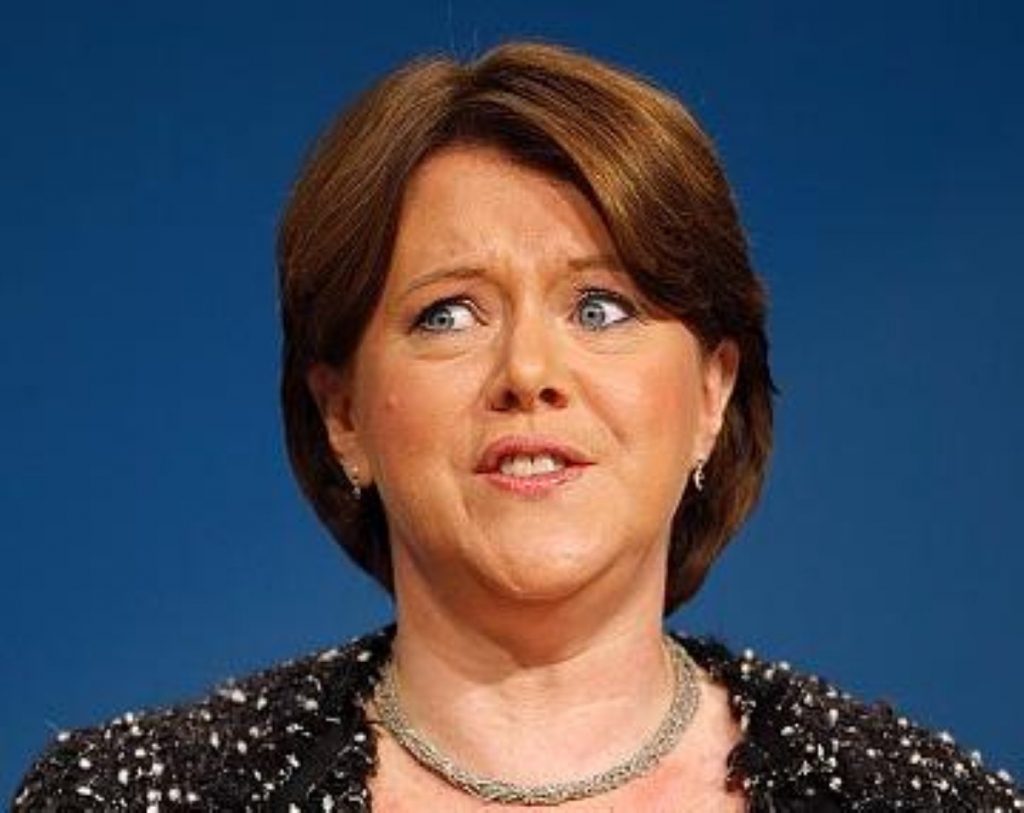How did Maria Miller keep her job?
Maria Miller has been forced to repay expenses and apologise to the Commons. Yet somehow she is still in her job.
The perfunctory apology lasted just 31 seconds and was delivered with an unmistakeable air of resentment, despite other Tory front benchers gathering around her in solidarity.
The papers this morning have their knives out. The Mail branded it an insult to parliament. The Telegraph suggested MPs had conspired to save her. The media response is given extra urgency by her leading role in the negotiations over press regulation.
When the allegations about Miller were put to her special adviser, she responded by observing that her boss had been having high-level meetings with editors recently, and perhaps the journalist wanted to think carefully about his story. This barely-concealed threat raised eyebrows in Fleet Street and confirmed many journalists' suspicions about what regulation of the press would look like. There were even reports that Downing Street director of communications Craig Oliver threatened the Telegraph over the story and mentioned Leveson – but these were denied by No 10.


Miller is not even considered particularly talented. Even admiring comments about her tend to suggest that she is operating at the upper reaches of her ability. As Telegraph journalist Benedict Brogan wrote this morning, "the consensus at Westminster is that she is a terrible minister, rude to colleagues and staff, temperamental, indecisive, and out of her depth".
So how did such an average minister survive a scandal which kills off political careers by contact?
Firstly, and most importantly, the standards committee gave her an out.
Kathryn Hudson, independent parliamentary commissioner for standards, said even old, pre-2008 rules would not have allowed the Tory MP to overclaim on mortgage interest payments, especially given it was for a much larger sum than what she had originally borrowed for.
And that's not to mention what was within the rules but clearly misleading, such as designating the home you own your secondary residence and the one you rent your primary one.
The Conservative-dominated committee took an extremely generous line on her behaviour, saying that "whatever the strict construction of the rule" it was "reasonable" to claim for the increased mortgage.
The only time the committee bared its teeth was when addressing how Miller conducted herself under investigation. The media secretary provided the "minimum necessary" assistence in the inquiry, blocked wider questions about her expenses claims, hired a QC to try to limit the scope of the probe and attacked the standards commissioner's inquiry as "flawed" and "distorted".
But MPs on the standards committee even backed some of these actions, saying the standards commissioner was "inappropriate" to apply the rules.
Miller is partly protected by the fact she has few enemies in parliament. She is considered somewhat vanilla – an inoffensive minister in a government of more divisive personalities. MPs on the committee would have heard few voices during the inquiry urging them to be tough on her.
She also enjoys David Cameron's characteristic distaste for firing ministers. Unlike Tony Blair or Gordon Brown, who would sack someone at the drop of a hat, Cameron tends to protect his ministers, even under the harshest level of media scrutiny. It's no coincidence that Jeremy Hunt, who miraculously survived a massive row over assisting Rupert Murdoch's commercial aspirations, walked to the back of the Commons to support Miller yesterday when she made her apology.
Cameron would be particularly loathed to sack her given that she is a state-educated woman – something so rare around the Cabinet table that it provides her career with its own moat and battlements. The PM is no position to reduce the number of women at the top of government, particularly with Labour itching to make it more of an issue leading into the general election.
Miller therefore survives to fight another day. But the row has fatally undermined any authority she had left with the press, who are insisting she is not fit to preside over the delicate talks concerning press regulation. The rumour is that she will be quietly reshuffled into the Wales Office at the nearest opportunity.












